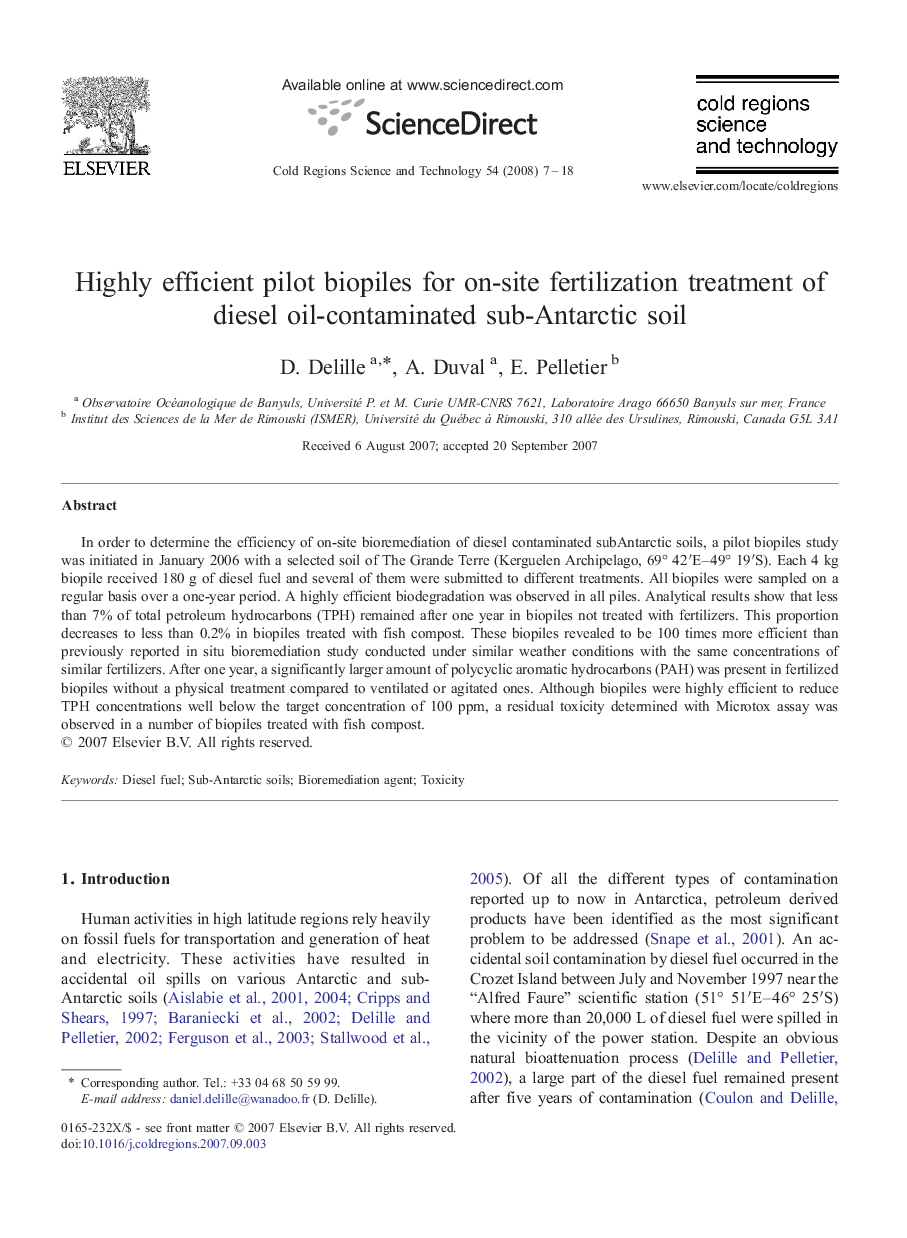| Article ID | Journal | Published Year | Pages | File Type |
|---|---|---|---|---|
| 4676648 | Cold Regions Science and Technology | 2008 | 12 Pages |
In order to determine the efficiency of on-site bioremediation of diesel contaminated subAntarctic soils, a pilot biopiles study was initiated in January 2006 with a selected soil of The Grande Terre (Kerguelen Archipelago, 69° 42′E–49° 19′S). Each 4 kg biopile received 180 g of diesel fuel and several of them were submitted to different treatments. All biopiles were sampled on a regular basis over a one-year period. A highly efficient biodegradation was observed in all piles. Analytical results show that less than 7% of total petroleum hydrocarbons (TPH) remained after one year in biopiles not treated with fertilizers. This proportion decreases to less than 0.2% in biopiles treated with fish compost. These biopiles revealed to be 100 times more efficient than previously reported in situ bioremediation study conducted under similar weather conditions with the same concentrations of similar fertilizers. After one year, a significantly larger amount of polycyclic aromatic hydrocarbons (PAH) was present in fertilized biopiles without a physical treatment compared to ventilated or agitated ones. Although biopiles were highly efficient to reduce TPH concentrations well below the target concentration of 100 ppm, a residual toxicity determined with Microtox assay was observed in a number of biopiles treated with fish compost.
